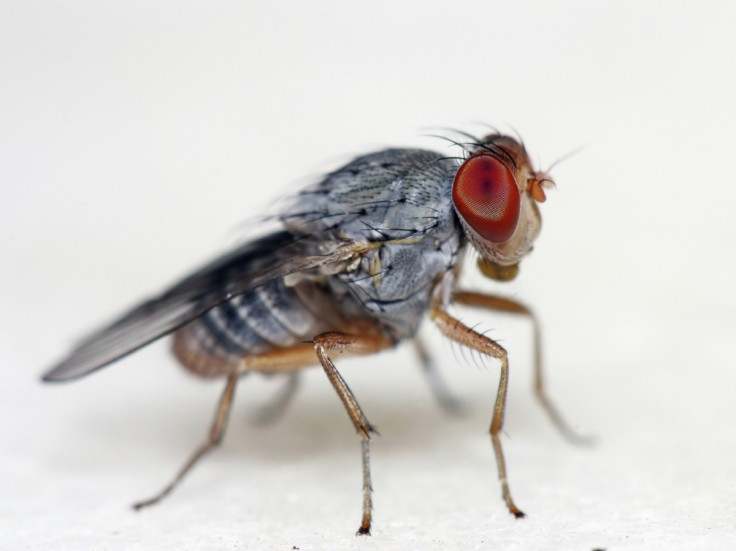How male fruit flies sing powerful love ballads when competing for female partners
Males who had to compete with other males for female attention were able to produce more seductive melodies.

Male fruit flies evolve to 'sing' powerful love songs when to trying to attract females, according to a new study from the University of Sheffield.
The researchers recorded the males creating a special sound, beating their wings at a rate of around 6,000 beats per minute, in order to woo prospective mates. Their findings were published in the journal Animal Behaviour.
The study was set up to investigate how female choice can affect the evolution of male characteristics. Groups of flies were kept for 110 generations in two different situations: one where every female had access to several males, and another where females only had access to one male.
After eight years, the researchers found that the populations where females could choose their mate were able to produce more powerful and longer-lasting 'love songs' that the flies which had been forced into monogamy.
The tempo difference between the songs of the two groups of males is three times that of the tempo difference between reggae and house music. This suggests that female mate choice can be a powerful driver of evolutionary traits.
"Our research shows that when, at each generation, females are given a choice among several mates performing energetically costly courtship, the motor performance of males in that population responds to this selection process and progressively improves," said Allan Debelle, co-first author of the study from the University of Sheffield.
"Because singing in fruit flies involves an important muscular effort, one possibility is that males under female selection did not solely evolve better singing skills but an overall better physical performance. Consistent with this, the researchers found that such males not only sing at higher tempo than the others, but they can also maintain a higher tempo for longer."
Alexandre Courtiol, co-first author of the study, added: "Our findings also suggest that when females aren't choosing their mate, males evolve to invest less energy in the construction of powerful bodies and demonstration of spectacular feats."





















